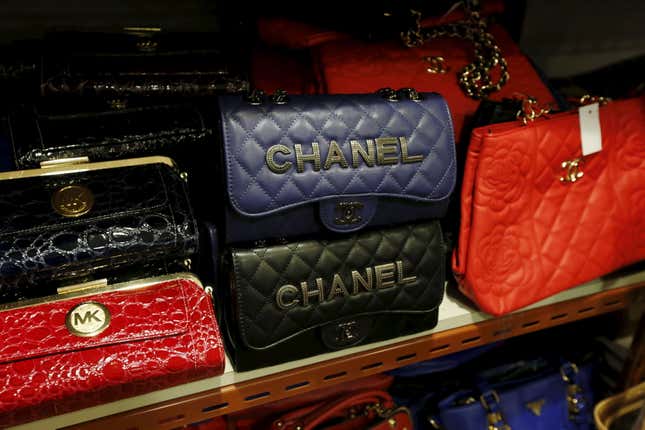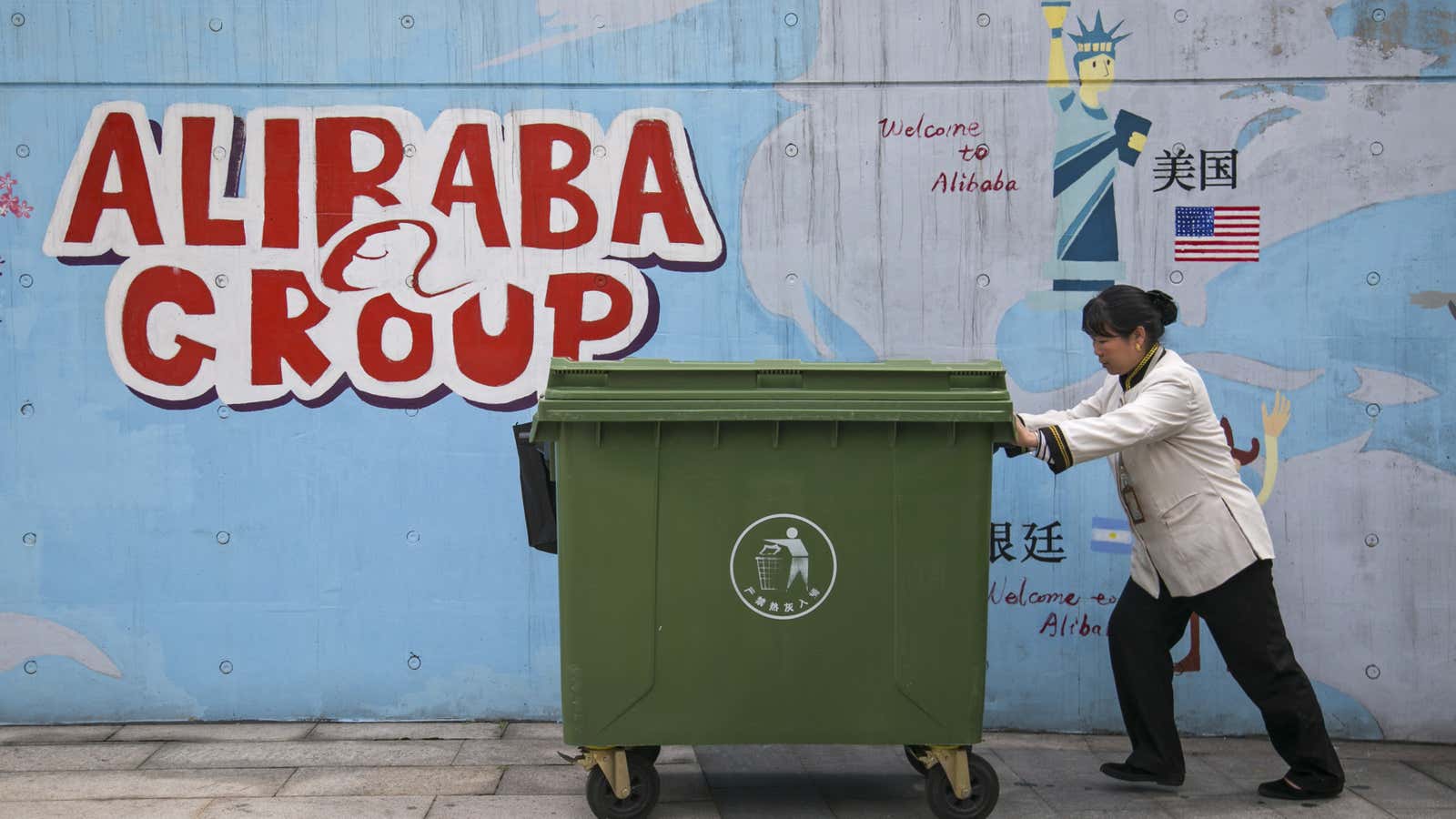Alibaba has seriously ticked off a number of high-end fashion brands. It caused a big rift in a major anti-counterfeiting group, the International AntiCounterfeiting Coalition (IACC), when the group in April welcomed in the Chinese e-commerce giant.
That’s because Alibaba, through its various marketplaces, is loaded with counterfeit versions of goods sold by many IACC members. Gucci was an IACC member, yet its parent company, Kering, sued Alibaba last year, claiming it facilitates and encourages sales of fakes. Gucci, Michael Kors, and Tiffany & Co. have all since left the IACC, and after the AP reported that the IACC president owns Alibaba stock and has close ties to a key executive, the group’s members forced it to kick Alibaba out after just over a month of membership.
It may not have been the best move, however. While brands may be angry with Alibaba, they have no better alternative than working directly with the Chinese e-commerce giant if they want to address threats to their businesses.
Digital research firm L2 noted in a recent report that international brands don’t control most of the search results for their products on Alibaba, even if they’ve opened a shop on Alibaba’s brand-to-consumer platform, Tmall. The unauthorized sellers that the brands are fighting tend to dominate, and there’s little reason to believe that would change “without Alibaba’s active participation,” according to L2.
In its lawsuit, for example, Kering alleged that Alibaba sold the keyword “replica” to one of its sellers. It says Alibaba also “added the term ‘wristwatches’ to searches for ‘replica’ to direct Internet browsers to merchants selling replica wristwatches, including counterfeit wristwatches bearing the Gucci Marks.” There’s no easy way to fight that sort of behavior without Alibaba itself being on board.
There’s also a massive grey market for genuine but unauthorized goods flourishing on Alibaba that’s arguably a greater problem than fakes. Brian Buchwald and Andrew Roth of Bomoda, a consumer intelligence company, point out at Business of Fashion that, between Alibaba’s Taobao and rival JD.com, “9,000 authentic Prada products worth $3.1 million” (emphasis theirs) sold on the sites in the last month. None of those products were offered by Prada itself.
It’s problematic for a business that depends on image and exclusivity. Fakes and unauthorized goods can take away from real sales, but they can also dilute the brand image. Buchwald and Roth concluded that it’s “up to Western brands to meet Alibaba through both compromise—and perhaps partnership—in order to gain access to the platform’s vast consumer base and suite of tools.”

Alibaba is already the largest e-commerce platform in a country that luxury brands rely on heavily for sales. As of April, it claimed to be the world’s largest retailer, topping Walmart in the volume of merchandise sold.
At the same time, China’s booming middle class is shopping more for fashion, and unlike in the West, they have no qualms about buying high-end goods through mega-platforms (pdf, p. 14) such as Alibaba and JD.com. Luxury brands that want that business don’t have much choice, and Alibaba may be ready to deal.
In an op-ed for the World Trademark Review, Richard Liu, founder of JD.com, which has a better reputation for selling genuine products, mocked Alibaba’s claims that it finally wants to protect brands’ IP. “It is becoming clear to all that a business model based on prioritising profits from the sale of cheap counterfeit products no longer resonates with increasingly sophisticated consumers,” he wrote.
Alibaba wants that legitimate business now as China changes. Brands showed it the stick by turning their backs. But the carrot they can offer is working with it.
